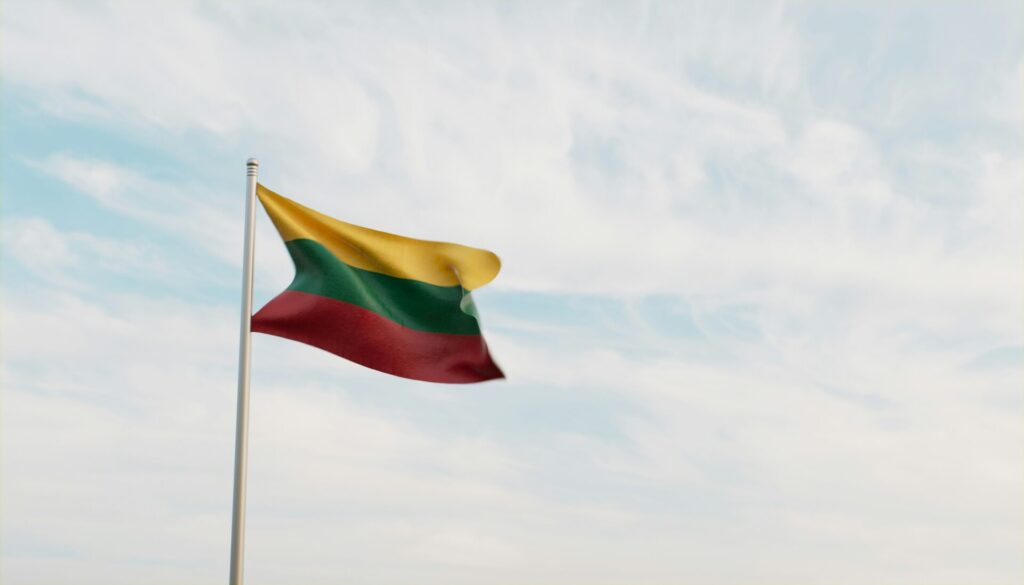
One might assume that entrepreneurs dislike paying taxes, or at least wouldn’t boast about it. However, in Lithuania, unicorns openly celebrate their contributions to society.
Unicorns Lithuania, the country’s startup association, even uses taxes paid as a proxy for success — and by this count, the local tech ecosystem is booming. According to its figures, startups operating in Lithuania paid €128.2 million in taxes in the first quarter of 2025 — 19% more than in the same period of 2024.
“Despite challenging economic and geopolitical circumstances, startups continue to grow, expand their product and service portfolios, and attract investment,” said Unicorns Lithuania CEO Gintare Verbickaitė.
Top contributors during this first quarter were global cryptocurrency exchange Binance, which operates in Lithuania; second-hand marketplace giant Vinted; VPN and cybersecurity champion Nord Security; Wargaming, a Belarusian video game development firm that relocated to Lithuania; and Baltic Classifieds Group.
Binance’s case is particularly interesting, especially in the context of Lithuania taking a stronger stance on crypto companies. According to the association, Binance paid the most in taxes among all startups nationwide from January to March this year. This reinforces the understanding that Lithuania’s ecosystem thrives on a blend of local talent and global players.
The cynical view would be that this is out of necessity. With only three homegrown unicorns so far, Unicorns Lithuania sees no reason in nitpicking about the fact that a fourth, Flo Health, is officially headquartered in London. Nor to remove Pixelmator from its startup count, despite its recently completed acquisition by Apple.
But it is also pragmatic. Foreign companies hiring Lithuanian talent, as well as Lithuanian companies that move abroad but keep a strong foothold at home, are having a strong impact — both on the local tech scene and on Lithuania’s overall growth.
This is also where Lithuania’s scale comes into play. With a population of 2.89 million, the Baltic country is small enough that Binance was actually one of the five largest taxpayers. This makes it easy to see how attracting and creating more of these could boost Lithuania’s growth.
“We believe that, given the right conditions, the ICT sector could generate up to 20% of the country’s GDP by 2030. This scenario is realistic, considering that last year the sector’s contribution to GDP already stood at 15%,” Verbickaitė said.
Putting this perspective front and center is part of Unicorns Lithuania’s communications. Alongside figures on job creation and salaries, it helps strengthen its case that startups deserve to be heard and supported.
In that regard, publishing these results also gave Verbickaitė the opportunity to vocalize their call for “a favorable and stable” tax and regulatory environment. “It is extremely important for us not to lose competitiveness and to offer the most attractive conditions for both the companies themselves and the talents they need,” she said.
These advocacy efforts are meant to benefit Unicorns Lithuania’s 120 members, but also the broader ecosystem — including a growing long tail of emerging startups. For example, compared to the same period last year, the number of companies paying more than €1 million in taxes in the first quarter alone increased by 13%.
For Verbickaitė, “this shows why we must sustain growth conditions for the entire ecosystem – which is becoming a significant driver of the Lithuanian economy.”
The impact that startups can have could even extend beyond the economy. For instance, Unicorns Lithuania was one of the spearheads of the successful ‘Four Percent Initiative’ advocating for 4% of the country’s GDP to be spent on defense — Lithuania has since then committed to bringing that percentage to 5.5%.
Beyond percentages, Unicorns Lithuania wants to ensure that the pie gets bigger. An often circulated goal is for Lithuania’s GDP to reach €100 billion by 2030 — and the startup sector is here to fuel this growth.




